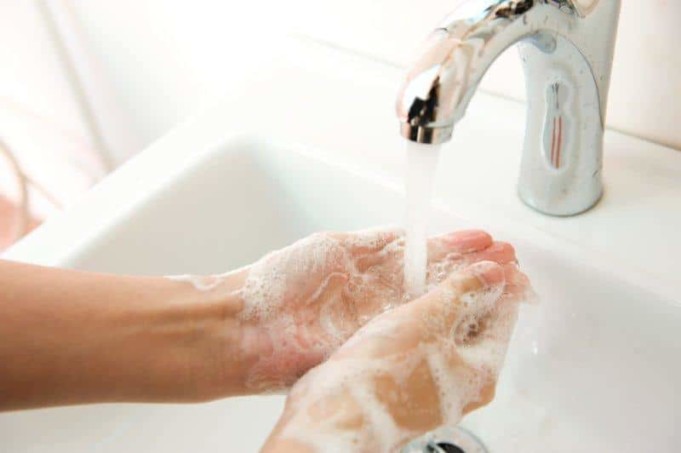There you are coiled up in a duvet, honking into a tissue and croaking at family members to pass the remote control so the banality of daytime television can compound your misery.
Rivers of nasal discharge stream from your beak. Your head, it seems, is close to bursting. Your temperature is akin to that of a rotisserie chicken on a Club 18-30 holiday to Magaluf. “Why me?! I’m a good person!” you squawk as your loved ones retreat to a safe distance and the ad break offers sweet relief from Jeremy Kyle.
“DLKDJWOIEJOE!” you whimper incoherently before crumpling defeated on your sick bed in a heap of phlegm, snot and lemon-based drinks.
You, my friend, are a mess
However, by simply washing your hands correctly, the chances of a scenario where infectious diseases like the flu and the common cold molest your immune system are slashed.
Not only will diligent hand washing help keep you healthy, it should prevent infectious diseases from spreading to others – even your unsympathetic other half…
When to Wash Your Hands
Although it may feel like teaching your grandmother how to suck eggs, you’d be amazed at how many people refuse to follow simple hand washing etiquette.
To keep nasty bacteria at bay then, you should be washing your mitts before, during and after preparing food, before eating food, after using the toilet, and after blowing your nose, coughing or sneezing.
Additionally, if you touch garbage or come into contact with an animal or animal waste, you should be prepared to scrub your digits thoroughly.
How to Wash Your Hands Properly
Whether you’re at home using your own facilities or you’re out and about using public washroom services, it’s important you know how to wash your hands properly to stop bacteria in its tracks.
Firstly, wet your hands with running water and apply enough soup to cover your hands. Then, lather hands by rubbing them together, ensuring you reach the backs of your hands and under your nails.
Scrub your mitts for at least 20 seconds before rinsing them under clean, running water before using a clean paper towel to dry them off. Easy.
Hand Washing Alternatives
Although washing your hands with soap and water is one of the best ways to reduce the threat of nasty microorganisms, this method may not always be feasible.
Consequently, to avoid being caught short, try carrying an alcohol-based hand sanitiser with you. Make sure the sanitiser you choose contains at least 60 per cent alcohol, though.
Admittedly, this is a quick fix, so it’s important to remember sanitisers won’t eliminate all types of germs, so avoid eating with your hands or touching your face until you can wash up properly.












